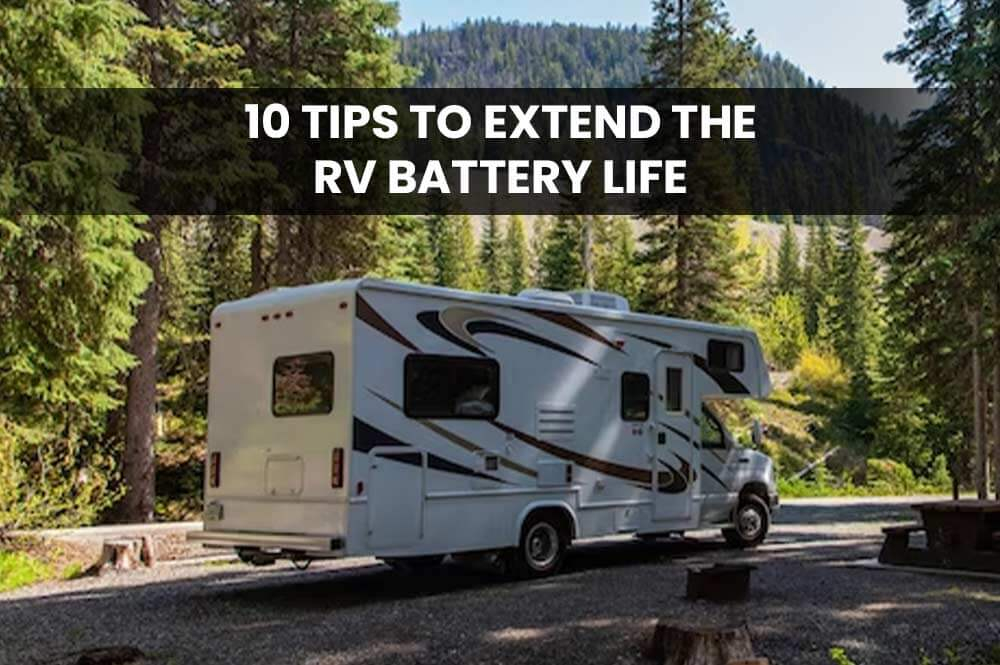10 Tips To Extend the RV Battery Life

RV batteries are one of those things that you should be aware of. In reality, all you worry about is turning on your hairdryer, coffee maker, or toaster without considering where the power comes from.
Most people find discussing watts, amps, voltage, sine waves, inverters, and parasitic drain to be too technical. Backup battery power in your RV is quite useful when visiting campsites or other locations where hookups are not accessible. However, neglecting to maintain these deep-cycle batteries can significantly reduce their overall performance and service life.
While it can be difficult to remember to water and inspect your RV's batteries on a regular basis, following a strict and consistent battery maintenance schedule can significantly improve their performance.
A regular maintenance regimen for deep-cycle batteries is not difficult to implement. Here are a few basic methods to take to make them last longer and save you money in the long term.
How to Extend RV Battery Life
1. The Most Important Thing Is Safety
Wear gloves and eye protection and work in a well-ventilated location. When servicing batteries, turn off all electrical loads, including the battery charger.
2. Examine the Batteries
Check that the vent covers on top of the batteries are correctly seated by opening the battery compartment. Spark arrestors are built inside the vent caps to help prevent gas ignition in and around the batteries. Except while watering, always keep them in place.
3. Terminals that are clean
To remove corrosion from battery terminals, make a solution of baking soda and water. To avoid unintentional arcing, use a wire brush with a wooden or plastic handle. Rinse with water and pat dry with a clean cloth.
4. Examine the Connections
Battery terminal connections might become loose, so make sure they're secure. Terminal torque is advised at 100 inch-pounds, or 15 to 18 pounds on the end of a six-inch wrench. To avoid inadvertent arcing, use insulated tools or wrap them in electrical tape. To prevent corrosion, spray the terminals with silicone spray.
5. Check Electrolyte Levels
Depending on usage, check the electrolyte levels of the batteries every two to four weeks. Because some electrolyte is lost after each charge cycle, it's critical to keep the electrolyte at the right level—about a quarter inch below the fill well's bottom.
6. Take note of the temperature
High temperatures can harm your battery, while extremely low temperatures can cause it to freeze if not completely charged.
7. Check the water level on a regular basis
Water must be added to the battery after charging, unless the plates are already exposed. In hot temperatures, take extra precautions and use distilled water.
8. It should be cleaned on a regular basis
Remove any corrosion that has accumulated. For this, use a specialized product and a toothbrush.
Final Suggestions for Extending the Life of RV Batteries
Prolonged exposure to extremely cold conditions (below freezing) will drain your RV batteries. Lithium batteries despise frigid temperatures. Some have their own heaters, but when it gets too cold, they cease charging and discharging. It is not good to sit unused for an extended period of time. If your phone is in storage, consider using a slow charger. That's all.
Conclusion:
To extend the life of RV batteries follow the above tips and save your batteries from draining.
Shop RV batteries from Batteries Store.